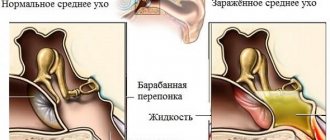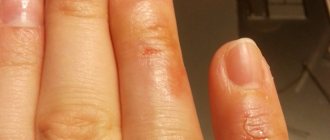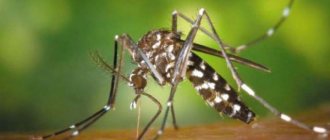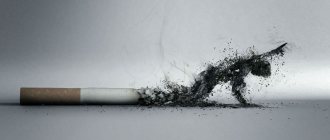Types of bronchitis
Bronchitis, depending on the duration, severity, localization of the source of inflammation, is divided into types.
By place of origin
- a disease, the source of inflammation of which is initially the bronchi, is called primary;
- complication as a result of previous infection - influenza, pneumonia, whooping cough, pulmonary tuberculosis - secondary bronchitis
According to the type of inflammatory process
- catarrhal, characterized by increased production of sputum in the bronchi;
- purulent, when purulent masses are present in the sputum;
- mucopurulent, combining the symptoms of the two above;
- hemorrhagic, the defining feature of which is the presence of blood in the bronchial secretions;
- fibrinous, dangerous due to possible blockage of the bronchial lumen and obstruction of patency, since a large amount of fibrin protein is detected in the sputum. It makes the bronchial secretions viscous and does not allow separation from the bronchial tissue.
By nature of distribution
- occurring in a limited area (focal);
- affecting large areas of bronchial tissue (diffuse)
According to the location of inflammation
- in small branches, bronchioles, at the border of the bronchi and lungs - bronchiolitis;
- in medium-caliber bronchioles – bronchitis;
- in large bronchi and trachea - tracheobronchitis
Tracheobronchitis includes symptoms of tracheitis. Catarrhal phenomena are characterized by a sore throat, coughing attacks with a sharp breath, or laughter. Sputum is not separated, coughing causes a lot of trouble at night, leaving aching pain behind the sternum.
By duration
- acute bronchitis, characterized by inflammation in the bronchial mucosa. Leads to excessive mucus production and disruption of bronchial conductivity. The mucous membrane is swollen, with mucous or purulent secretion on its surface. The disease is caused by viruses or bacteria, provoking factors are hypothermia, high humidity, allergic reactions, chemical and mechanical irritations of the respiratory tract, decreased immunity, chronic diseases;
- chronic bronchitis, characterized by further spread of the inflammatory process. Cough with sputum does not go away for more than three months in a row. Smoking is considered one of the factors contributing to the development of the chronic process.
Chronic asthmatic bronchitis is distinguished. With its development, bronchial hyperreactivity provokes bronchospasms, which manifest bronchial obstruction. It depends on the body’s exposure to allergens and weather conditions and is a reversible (partially reversible) process. Shortness of breath is typical.
How does bronchitis develop?
With bronchitis, the patient feels pain in the chest, in the throat, and a paroxysmal cough is not productive for the first two or three days. Weakness and shortness of breath appear.
After a few days, the sputum begins to separate; it contains pus, mucus, and traces of fresh blood. If the inflammatory process is focal, then the body temperature does not rise above 380C. A diffuse course entails a rise in body temperature to 39-400C, shortness of breath, and tachycardia.
Properly selected treatment guarantees full recovery in 14-20 days.
Damage to the branching of small bronchioles begins with severe catarrhal phenomena and inflammation of the bronchi. Bronchiolitis is typical for infants; when it progresses rapidly, the disease poses a serious danger, since the lumen of the bronchioles narrows and respiratory failure develops.
The patient's frequency of respiratory movements increases, but they are superficial, the intercostal spaces are retracted, and the wings of the nose are greatly inflated. Blue discoloration of the skin of the nasolabial triangle, ears, fingers, and mucous membranes is observed. Body temperature is high. Heart failure may occur due to bronchiolitis.
List of effective drugs
Syrups
The most commonly used liquid dosage form is syrups based on herbal components. They relieve the inflammatory process and thin the viscosity of the secretion, and also promote its coughing, which helps to effectively treat coughing attacks.
To reduce the symptoms of the disease, the following antitussive syrups are used:
Syrup Lazolvan
- Lazolvan. Helps soften the viscosity of the secretion and removes inflammation in the bronchi, and also has general strengthening and regenerating properties.
- Bronholitin and Codelac Phyto. They have bronchodilator and antitussive effects and do not depress breathing.
- Glycodin. Has expectorant and antitussive properties. Suppresses the excitability of the cough center, relieves cough of any etiology.
- Gedelix and Eucabalus. They are used for the symptomatic treatment of acute respiratory viral infections and the reduction of chronic inflammation of the bronchi.
- Sinekod. Suppresses cough without inhibiting respiratory function. Promotes rapid coughing up of mucus. Effective in chronic and acute forms.
Syrups to thin the viscosity of secretions are prescribed for scanty and thick sputum.
This group includes the following:
Ambrobene syrup
- Based on ambroxol: Ambrobene, Medox, Bronchoval and others. They help soften secretions and remove mucus.
- Mucolytics with acetylcysteine: ACC. Prescribed to reduce the frequency of relapses in chronic bronchitis and cystic fibrosis. Helps improve the discharge of viscous secretions.
- Medicines with bromhexine: Ascoril Expectorant, Bronchosan. They inhibit the cough center and thin the bronchial mucus.
- Products based on carbocysteine: Libexin Muco, Fluifort, Fluditek and others. Prescribed for difficult to separate sputum from the bronchi, they provide sanitization of the respiratory system.
Pills
Some of the most effective drugs are the following:
Libexin tablets
- Ambrobene. Recommended for non-productive cough due to inflammation of the bronchi. Used for acute or chronic stages of the disease.
- Libexin. It has anti-inflammatory, analgesic and antispasmodic effects, and also blocks the peripheral parts of the cough reflex. Recommended for non-productive coughing.
- Mukaltin. It contains one component - marshmallow extract. Appointed for productive type. It has an anti-inflammatory effect and enhances bronchial secretion.
- Stoptussin. Prescribed by a doctor for dry and irritating cough reflex. It has a mucolytic effect and suppresses coughing.
- Falimint. An antiseptic, antitussive drug that eliminates dry reflex cough, and also dilutes secretions and reduces irritation.
Other medicines
Also, along with expectorants and mucolytic drugs, antiviral agents (Remantadine, Tamiflu, Isoprinosine), various groups of antibiotics in tablets and injections (penicillin and cephalosporin series, macrolides, fluoroquinolones) are prescribed.
For obstructive inflammation of the bronchi, bronchodilators, mucolytics, a course of antibacterial therapy are prescribed, and inhalations using eucalyptus essential oil also give good results. They are recommended for the following indications: shortness of breath, nonproductive cough, poor secretion, and a feeling of tightness in the chest.
To cure bronchitis in a smoker, anti-inflammatory, mucolytic drugs, bronchodilators, medications with an expectorant effect, as well as physiotherapy can be prescribed.
Not a single drug for the treatment of coughing with smoker's bronchitis will be effective if the entry of toxic substances into the body is not eliminated - you need to quit smoking.
Treatment of acute bronchitis with folk remedies
One of the most popular ways to treat bronchitis at home has become hot and cold inhalations.
To carry them out, use a nebulizer or a container of hot water over which you can breathe steam.
To effectively thin sputum in acute bronchitis, add baking soda (1 tsp per 1 liter of water), table salt, and iodine solution (10 drops/1 liter) to the water. A few drops of eucalyptus or anise oil soften the mucous membrane and facilitate phlegm discharge.
Steam inhalation is contraindicated for young children due to the risk of burning mucous membranes. People suffering from cardiovascular diseases and hypertensive patients should approach the procedure with caution.
See also on the blog: Treatment of cough in children
Recipes for treating bronchitis with folk remedies
Coltsfoot
Coltsfoot leaves are an expectorant and antipyretic.
Brew 1 tbsp in 0.2 liters of boiling water. l. herbs are heated, without bringing to a boil, in a water bath for 15 minutes, then infused under the lid for 45 minutes.
The strained infusion is topped up with boiled water to 0.2 liters and ½ tbsp is taken. on an empty stomach 3 times a day. Store the infusion in the refrigerator and reheat before use.
Elecampane root
1 tsp dried crushed elecampane root is poured into 0.2 liters of boiling water and heated in a water bath for 15 minutes. Leave for an hour and filter.
Take 50 ml three times a day before meals.
Onion
Peel 3 medium onions, chop finely, place in a saucepan or deep bowl. Pour in milk and cook until the onion softens. Add honey (1 tbsp per 0.2 liter of broth). Take the medicine 1 tbsp. every hour for two to three days.
Signs of danger
Acute bronchitis lasts faster than chronic bronchitis, but is expressed by more intense manifestations:
Cough .
At the beginning of acute bronchitis it is irritated and dry. Painful attacks of cough syndrome are accompanied by chest pain, wheezing and hoarseness. A dry cough is very intense, sometimes causing headaches and increased blood pressure. After 3-4 days, cough with acute bronchitis in adults turns into a wet form. Important! In acute bronchitis, pay attention to the color of the sputum.
If it turns greenish-white, this is evidence of a bacterial infection. Temperature . High temperature (up to +38-40⁰ C) is a clear indicator of the viral nature of acute bronchitis in adults. With a bacterial infection, the temperature remains at the level of subfebrile norms (+37.2-37.5⁰ C).
Shortness of breath . A very alarming sign indicating that acute bronchitis provokes the development of bronchial obstruction. If this process is not slowed down in a timely manner and treatment is not carried out, the bronchi of an adult will no longer be able to be reanimated and return to their original form.
Acute bronchitis has a destructive effect on the body of an adult, already weakened after suffering from the disease. Lethargy, a feeling of exhaustion, constant fatigue, irritability are faithful companions of acute bronchitis. Treatment of pathology should be carried out immediately, without waiting for serious complications to appear.
Traditional recipes with honey for chronic bronchitis
In many recipes for the treatment of chronic bronchitis, honey is one of the ingredients.
- Add 2 tbsp to freshly squeezed carrot juice (0.2 l). l. honey, stir, take 1 tbsp. l. on an empty stomach 3-4 times a day;
- Grate sour apples, mix them with linden honey in equal proportions, eat 1 tbsp. l. 4-5 times a day;
- Add 1 tbsp to 0.2 liters of milk. l. honey, bring to a boil, cool. Stir ½ tsp in milk. baking soda and drink small sips before bedtime. Fresh honey, not boiled in milk, irritates the mucous membrane of the throat and trachea, worsening the cough;
- Mix 1 tbsp. l. flour, mustard powder, honey, alcohol, vegetable oil. Heat the mixture in a water bath. Place the finished “dough” on the area where the pain is localized, cover with cling film larger than the compress, and wrap with a woolen scarf. The duration of the procedure is 30-40 minutes. Children are advised to put mustard plaster through a thin diaper so as not to cause skin burns;
- The aloe leaf is washed, the thorns are cut off, and finely chopped. Add 0.3 kg of honey, 0.1 liters of water. Cook over low heat for 2 hours, stirring and not letting the mixture burn. The medicine is taken 1 tbsp. l. 3 times a day, store in a cool, dark place in a glass container;
- 0.2 kg of sugar is dissolved in 1 liter of water. Place 2 peeled onions in the syrup and cook over low heat until the volume is reduced by half. Take 0.1 liter twice a day before meals;
- Rubbing the chest and back with goose and badger fat is effective. After rubbing, it is recommended to put on a cotton T-shirt and a woolen sweater, drink a cup of raspberry tea or hot milk;
- Melt ½ stick of butter, add 10 g of crushed propolis, add 0.1 liter of honey. To prepare a medicine ready for use, 2 tsp. The mixture is stirred in 0.2 liters of boiled warm water. The product thins mucus and makes coughing easier. Store the prepared mixture in the refrigerator; it is not recommended to prepare it for future use.
In the room where a person with bronchitis is located, the air must be humidified and regularly ventilated. You should know that air temperatures above 18 degrees make breathing difficult, dry out the mucous membranes, and provoke a cough. An additional pillow should be placed under the head and shoulders, raising the upper half of the body. The patient must be given a warm drink.
Before using traditional medicine recipes, you should make sure that the patient is not allergic to the ingredients of the medicine. In addition, you should not neglect traditional medicine, and if there are symptoms of obstruction, cyanosis, or difficulty breathing, immediately call an ambulance.











